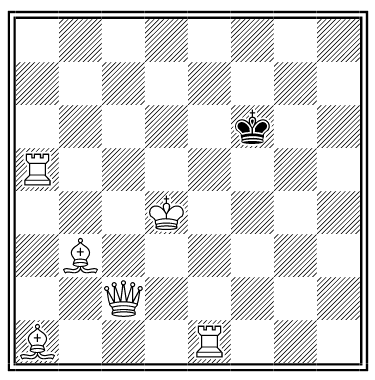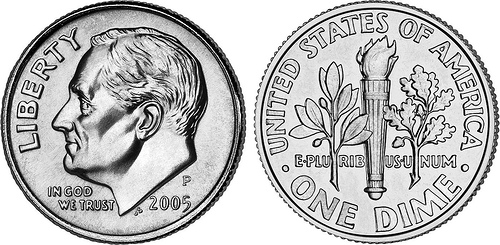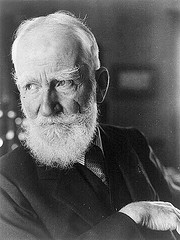
Composed by Tolosa.
Solution: Lift the king into the air.

Composed by Tolosa.
Solution: Lift the king into the air.
On July 25, 1956, 14-year-old Linda Morgan was in her cabin on the Andrea Doria when it collided with the Stockholm in the North Atlantic. It was feared she had been killed in the disaster: She did not reach any rescue ship, and the Andrea Doria capsized and sank the next morning.
But then a strange story emerged. Shortly after the collision, a crewman on the Stockholm had heard a young girl calling for her mother from behind a bulwark. “I was on the Andrea Doria,” she told him. “Where am I now?”
Apparently the collision had flung her out of her bed and into the other ship. She suffered only a broken arm.
Mersenne once wrote to Fermat asking whether 100895598169 were a prime number.
Fermat replied immediately that it’s the product of 898423 and 112303, both of which are prime.
To this day, no one knows how he knew this. Has a powerful factoring technique been lost?

The U.S. dime does not state its value. It’s labeled simply “one dime.”
“Among those whom I like, I can find no common denominator, but among those whom I love, I can; all of them make me laugh.” — W.H. Auden
The longest item of news ever telegraphed to a newspaper, was the entire New Testament as revised, and all variations of the English and American committees, from New York to Chicago, and the whole published as an item of news in the Sunday morning Chicago Tribune for May 22, 1882. That day’s Tribune comprised 20 pages, 16 of which were required for the New Testament.
— Miscellaneous Notes and Queries, May 1889

Our eyes tend to assume that light comes from above, so this looks like a mound of earth.
In fact it’s an image of Arizona’s Meteor Crater … shown upside down.

Halfway between Hawaii and the mainland United States, there’s a vortex of ocean currents where plastic flotsam accumulates.
It’s known as the “Great Pacific Garbage Patch” — and it’s the size of Texas.
93 + 13 + 93 = 1459
13 + 43 + 53 + 93 = 919

A razor company once invited George Bernard Shaw to shave his famous beard. He responded with a postcard:
Gentlemen:
I shall never shave, for the same reason that I started a beard, and for the reason my father started his. I remember standing at his side, when I was five, while he was shaving for the last time. “Father,” I asked, “Why do you shave?” He stood there for a full minute and finally looked down at me. “Why the hell do I?” he said.
— GBS